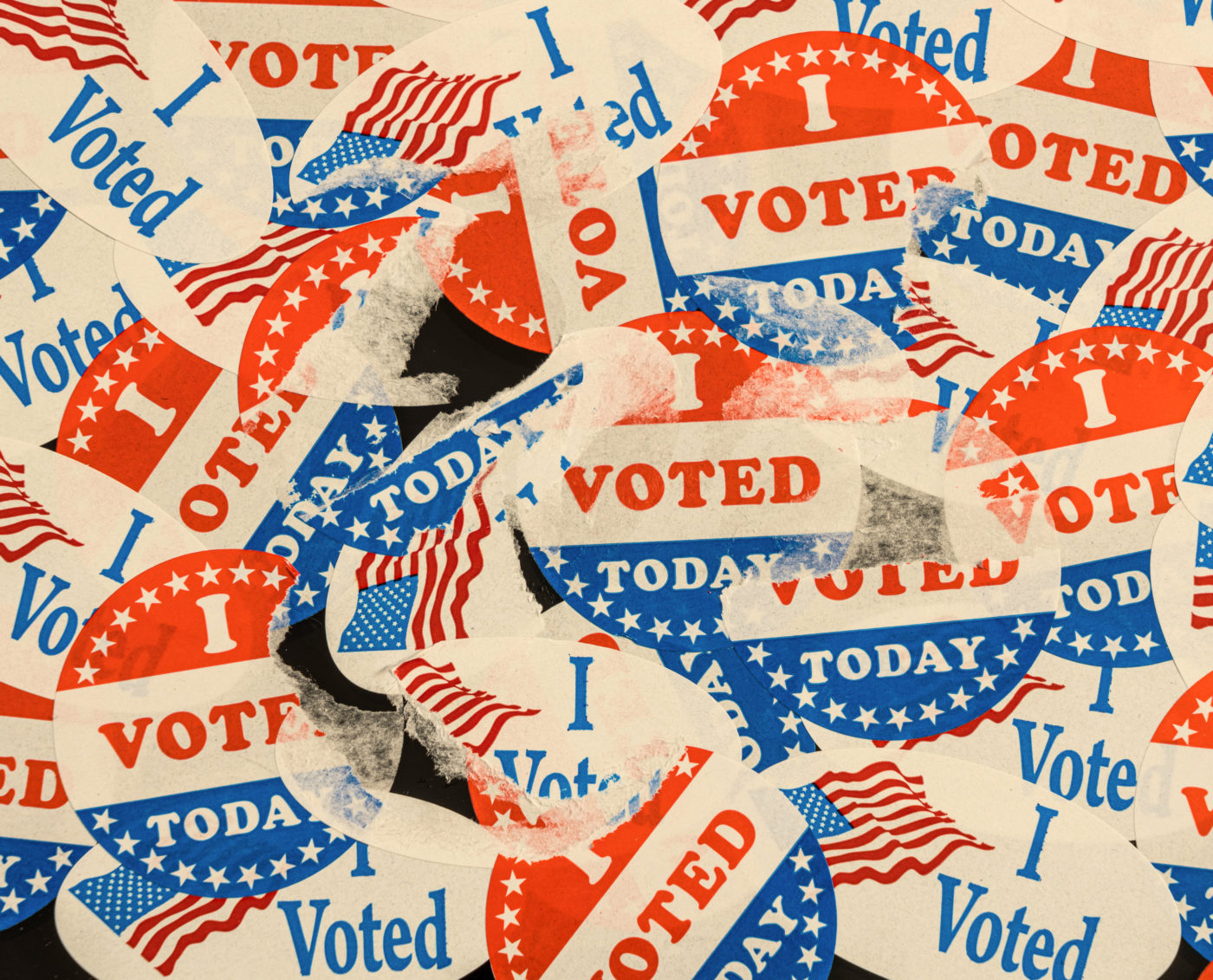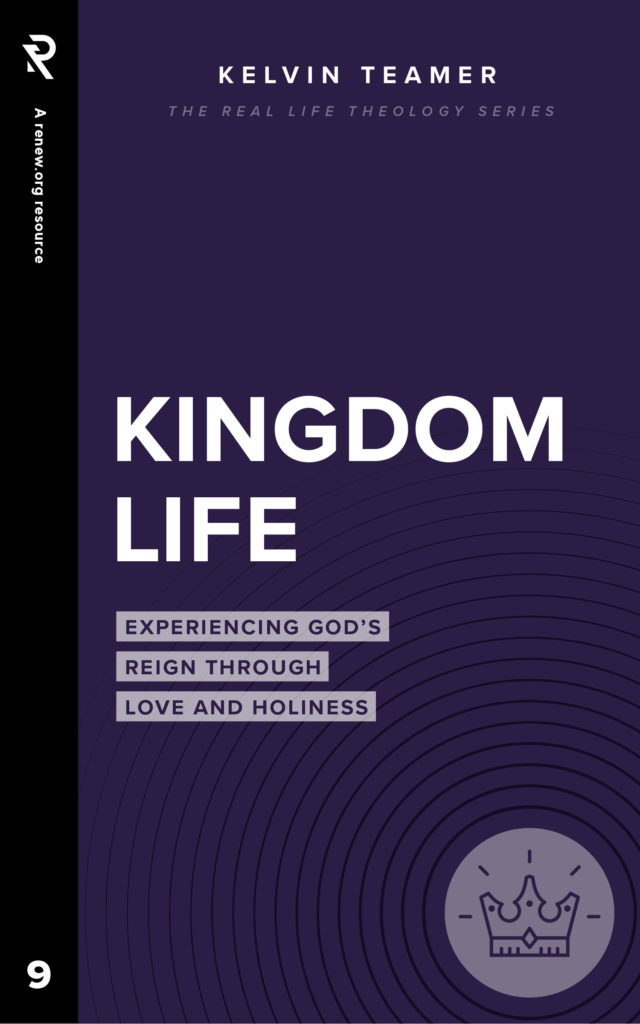
Christians and Politics: 5 Principles for Christian Interaction with the Political World
What should the relationship between Christians and politics look like? Here are five guiding principles for choosing faithful Christian engagement when it comes to politics: Remember your most primary citizenship. Choose to be influenced by theology over ideology. Prioritize Christian witness over political power. Choose influence over susceptibility. Trust in God instead of giving into panic.
As a minister who leads a church, I’m frequently asked difficult questions. I don’t mind tough questions. In fact, there are times I enjoy the challenging task of puzzling out an answer to an objection to something I have said, a theological or doctrinal quandary, or something similar. One of the most difficult questions I have faced the last few years—and maybe you can identify here—is where Christians ought to stand politically. This question can take a few different shapes. Maybe you have heard one of these. Should Christians be involved in the political sphere at all? Should we vote when neither candidate seems to hold to Christ-like values? What if one candidate seems to represent much of what you value ideologically, but there is an obvious moral disconnect? Is there one issue that outweighs all others when voting?
These can be difficult questions. And if I’m honest, I have often found myself struggling to find clear answers. How do you feel when faced with a nagging question and you simply can’t find a satisfying answer? The question doesn’t go away with quick (often one-sided) answers; often the nagging only increases in intensity. I would like to suggest an alternative approach to the one we often default to, one that has arisen out of personal experience and effort as I’ve tried to address a variety of difficult issues. Here’s where I’ve landed, and I hope it’s helpful to you too: When you can’t find definite answers, search instead for guiding principles.
“When you can’t find definite answers, search instead for guiding principles.”
Here’s what is different about this principle-based approach and why I think it is so applicable to the questions we Christians face when engaging in politics. Answers are focused on solving a problem. If you satisfactorily answer the question, you’ve resolved the issue. Principles, however, are what we employ as we try to navigate our way through an ongoing problem or issue. And, as it relates to politics, we should acknowledge that the question of how to engage is not one that can be neatly resolved, but it is one we must wisely navigate.
With this in mind, I would like to present you with five principles that I believe will be helpful to disciples of Jesus who have wrestled and will continue to wrestle with the difficult question concerning the how of political engagement. Here I will also show my hand, in that I am not arguing for non-involvement, but rather wise and faithful engagement. Therefore, it is my hope that these principles will allow you to navigate these strange times with wisdom and faithfulness.
Principle 1: Choose Kingdom over Nation
To a people who were wrestling with questions equally difficult to the ones we face today, the apostle Paul famously said, “Our citizenship is in heaven” (Philippians 3:20). I wonder just how compelling that idea is to most of us. My guess is that many of us treat Paul’s words not as a concrete statement of fact, but as an abstract and perhaps aspirational idea. But Paul was plain in his words to the Philippians. To him, citizenship in heaven was not wishful thinking, or a far-off promise, but a very present and transformative reality. Jesus was equally plain as He stood on trial before the Roman governor Pontius Pilate and declared, “My kingdom is not of this world. If it were, my servants would fight to prevent my arrest by the Jewish leaders. But now my kingdom is from another place” (John 18:36).
Christians and Politics: “As followers of Jesus, we are first and foremost to be a not-of-this-world kind of people.”
As followers of Jesus, we are first and foremost to be a not-of-this-world kind of people. Our heavenly citizenship should be what defines us more than anything else we might be tempted to root our identity in. I am an American, but I am first a citizen of heaven. Someone may think, Isn’t that the perspective most Christians already have? After all, as the saying goes, “God, family, country.” Right? And yet, our value system isn’t always in the order we like to think. Which keeps you up more at night: the direction of the country or the advance of God’s kingdom? Which animates your conversations more: what this or that politician just did or what God is doing?
My identity as a follower of Jesus should compel me to think of myself first as a citizen of heaven and then acknowledge that I also have an earthly place of residence. For me, it’s a little more complicated because I have dual earthly citizenship with one American parent and one European. Yet even for me, if there is ever a question of my most fundamental allegiance, the answer to that question is easy because I’m first and foremost a citizen of God’s kingdom.
So how does this choice of kingdom over nation affect us practically? Here are a few quick thoughts: We should recognize in the words of Peter, that no matter where we live, the reality that we are citizens of heaven means that we are exiles, strangers, and foreigners (1 Peter 1:11, 1 Peter 2:11) in our land of residence. This should raise another question. Just how should an exile, stranger, or foreigner relate to his or her country of residence? For some guidance here, the words of the Old Testament prophet, Jeremiah, will be useful. Writing on behalf of God to the exiled people of Israel Jeremiah says, “Seek the peace and prosperity of the city to which I have carried you into exile. Pray to the Lord for it, because if it prospers, you too will prosper” (Jer. 29:7).
Christians and Politics: “Seek the peace and prosperity of the city to which I have carried you into exile. Pray to the Lord for it, because if it prospers, you too will prosper.”
We should seek the peace and prosperity of the country in which we live. We should pray for it. We should pray for the leaders of that nation—as the apostle Paul also instructs in Romans 13. These are the wise and faithful actions of a wise and faithful people. Our kingdom-first identity might frustrate those who want us to be reliably on their side of political issues no matter what. Even as we may frustrate people, when we live out that identity, we will bless the nation in which we reside. But we should also be careful. Situations will arise that call into question our ultimate allegiance. And when this happens, we must know where we stand.
Principle 2: Choose Theology Over Ideology
The Oxford Languages Dictionary defines theology as “the study of the nature of God and religious belief.” You might say that theology at a very practical level involves the thoughts we have about God. In this sense we are all theologians to some degree. In contrast, The Oxford Languages Dictionary defines ideology as “a system of ideas and ideals, especially one which forms the basis of economic or political theory and policy.” Ideology, then, is a lens through which we look at the problems of the world around us, especially political and economic ones, and the way in which we propose, in theory, to resolve those problems.
When I say we should choose theology over ideology, what I’m not saying is that there is something inherently wrong with ideology. What I am saying is that if you choose to give yourself to a particular political or economic ideology, it’s very possible that it begins to shape your worldview more than the Bible does. Your ideology might very well change your biblical views to be more in line with whatever social subculture you most gravitate toward. Because it can be difficult to tell exactly what is at the heart of a particular political ideology, we as followers of Jesus should exercise wisdom as we sort through the confusion of a complex political system. And for those of us who follow Jesus, our starting point should always be Scripture.
Christians and Politics: “For those of us who follow Jesus, our starting point should always be Scripture.”
We must be people who value the wisdom of God—however foolish the world may tell us we are—over the wisdom of the world. Even as we face with pushback, sometimes ridicule, and possibly even persecution, we should allow some of those same words to reassure us about the rightness of the path we have chosen. Consider for example these words from Isaiah 55:8-9: “’For my thoughts are not your thoughts, neither are your ways my ways,’ declares the Lord. ‘As the heavens are higher than the earth, so are my ways higher than your ways and my thoughts than your thoughts.”’ Or, from 1 Corinthians 3:19: “’For the wisdom of this world is foolishness in God’s sight. As it is written: ‘He catches the wise in their craftiness.’” Ultimately, as disciples of Jesus, we must be a people whose thoughts begin and end with him. That will make us different, but this is a good thing.
Principle 3: Choose Christian Witness Over Political Power
In 2 Corinthians 5:20, the apostle Paul states that Christians are God’s ambassadors in the world. This is a heavy thought that we should absorb for a moment before moving on. In all I do, as a follower of Jesus, I am called to be a representative of God’s truth in this world. This is also true for you if you have given your life to Jesus.
This means that as we live as citizens of heaven and ambassadors of God’s kingdom, at times we should expect to find ourselves at odds with the kingdoms and nations in which we live. This is especially the case when a state expands beyond, or fails to live up to, its God-given roles of bringing order and exercising justice. We should expect to find ourselves at odds with leading political parties, and often popular politicians as well. As I contemplate this, a difficult question wells up in me. Just how intertwined can I be with any of this world’s systems and still be a faithful witness to God?
Christians and Politics: “Just how intertwined can I be with any of this world’s systems and still be a faithful witness to God?”
As I write that last sentence, I will acknowledge that many who don’t believe in the existence of God still stumble upon things that are good and right. We should expect this, as the idea of common grace is quite valid. The good that one party represents will and should draw us in. But what do we do when that same party stands for something that is truly reprehensible in the eyes of God? In his recent book Live No Lies, John Mark Comer presents “five distinctive features of the early church which he argues caused Christianity to stand out boldly against the cultural systems of the Roman empire in the first three centuries.[1] I will summarize those quickly here:
- The Church was an ethnically diverse group and valued people of varying cultural backgrounds, extending them dignity in accord with their creation.
- The Church was an economically diverse group and included, sometimes even elevated, those who were poor and outcast.
- The Church stood in strong opposition to the practices of infanticide and abortion.
- The Church embraced a radical sexual ethic, believing that God had called them to sexual faithfulness and purity, and to honor Biblical marriage well.
- The Church embraced a stance of nonviolence, as Comer indicates, on both “a personal and political level.”
Christians and Politics: “The Church was an ethnically diverse group and valued people of varying cultural backgrounds, extending them dignity in accord with their creation.”
Comer goes on to argue that if the Church were to re-embrace these five positions within our current political climate, the first two could put us at odds with conservative political ideology, the next two with liberal ideology, and the last would be an outlier that neither end of the political spectrum would likely embrace. But it was exactly this divergence from the values of the culture around them that enabled the Church to exist as such a powerful witness to the new family God was at work creating. Early Christians became a transformative witness to the goodness of God, even though they held almost no measurable political power until the process begun at the Edict of Milan issued by Constantine in the year 313.
I am concerned that many modern Christians value political power too highly, and when we do so, we run the risk of compromising Christian witness. Let me say once again that I am not advocating for non-involvement in the political system for those who follow Jesus. I am, however, advocating for a constant evaluation of the integrity of our Christian witness in relation to the degree in which Christians identify with the institutions of the world. The mission of Jesus, after all, has never been that of reforming the systems of the world through political revolution, but rather of partnering with God as he seeks to reconcile the world to Himself one redeemed soul at a time.
Christians and Politics: “The ultimate source of the brokenness we see in the world is not physical in nature, but spiritual.”
This understanding should never lead us to become aloof to the hurt and brokenness that is so rampant in the world around us, but it should lead us to recognize that the ultimate source of the brokenness we see in the world is not physical in nature, but spiritual. My plea to all followers of Jesus is ultimately this: let us never undervalue the power of true Christian witness, even when it places us in direct opposition to political ideology and practice.
Principle 4: Choose Influence Over Susceptibility
As we seek further guidance concerning Christian political engagement, we will once more turn to the words of the apostle Paul—specifically to some advice he gave the Corinthian church regarding their relationships with those who do not show obvious signs of following Christ. To illustrate his point, Paul used the image of two oxen plowing a field and in so doing, gave the Corinthians a wonderful metaphor that would have spoken volumes to people who lived in a predominately agricultural society.
While English translations of 2 Corinthians 6:14 tend to disagree on whether Paul told the Corinthians not to be yoked with unbelievers at all, or simply advised them about the danger of unequal yoking, this point is still clear: Any of us can be susceptible to ungodly influence depending on the partnerships we give ourselves over to. As followers of Jesus, we should search out positions of Christ-honoring influence, as opposed to allowing ourselves to be placed in settings in which we are sheep-like and impressionable.
Christians and Politics: “We should search out positions of Christ-honoring influence, as opposed to allowing ourselves to be placed in settings in which we are sheep-like and impressionable.”
A recent study released by the journal Political Psychology[2] points out just how far off track we can find ourselves when we neglect to heed the apostle Paul’s warning. In the study, the authors determined that many who voted for Donald Trump in the 2016 election were willing to revise their personal moral beliefs so that they aligned more closely to that of the candidate. To be clear, I am not making a judgment about any Christian who voted for Trump in the 2016 election, only pointing to a psychological phenomenon, something which no doubt can also be true of left-leaning Christians whose politics end up shaping their views of morality. Regarding 2016, a large percentage of the Republican voting base was made up of Christian evangelicals, who for years have held tightly to Bible-derived moral values. According to the results of the study, in 2016 with Trump as the nominee, many of those same evangelicals altered their long-held beliefs about the kind of candidate they were willing to vocally support. (And again, this is no free pass to those who lean leftward whose politics have also caused them to revise their reading of various passages of Scripture.)
Again, what is so unique about the findings of this study of 2016 is not that many who embraced conservative leanings voted for the Republican nominee. What stands out is that voters were willing to significantly alter their own moral beliefs to match those of the candidate they supported. As a result of this willingness to change to match the political winds, there are Christians willing to become “unequally yoked”—as evidenced by quite a few awkward appearances with politically active pastors (again, something seen on both sides of the political aisle), sometimes incoherent posts and rants on social media made by supporters of this or that politician, and the growing number of uncomfortable political and social alliances that emerge.
Christians and Politics: “You can hold your nose, but you don’t have to hold their water.”
With 2016 and now 2020 in the rearview mirror, the natural question becomes, “But what were Christians supposed to do given the choices the election presented them with?” That is a fair question. And to give an answer I’ve found helpful, I will share with you a phrase I have repeated many times during the last two election cycles: “You can hold your nose, but you don’t have to hold their water.” What I mean is this: Often, when talking with Christians about the choice between two balloted candidates, I have heard these words: “It is a choice of the lesser of two evils.” And that is often how I have felt when voting in recent memory.
So, when we step into the voting booth, faced with a difficult decision, we may have to choose the lesser of two evils—or as some have said, “hold our nose” while voting. I don’t at all begrudge anyone that, and frankly it makes sense. We are making the best of a far-from-perfect situation. What does not make sense is to become so susceptible to the influence of a political candidate that we choose to hold their water—a way of saying that we have become their servants, unequally yoked, and unrighteously influenced.
Principle 5: Choose Trust Over Panic
Ultimately, whoever is in office, we must remember that God is on His throne. This becomes more difficult to recall the more deeply we are invested in a particular political outcome. I can remember many Christians who thought the world was going to end when Barrack Obama was elected president of the United States. Eight years later, many believed we had finally reached Armageddon with the election of Donald Trump. Then when Joe Biden was elected in 2020, that was proof that the sky was finally falling. As I write this, we have moved into 2022, and unless we are living in some strange version of the Matrix, the world is still turning.
We are not the first people to have felt as though things were so bad, the world must be on the verge of coming to an end—nor even the first Christians to feel so. During the first century, persecution of Christians became so intense, that many were certain God would return shortly and put an end to their struggle.
Christians and Politics: “Paul provides them with specific instructions about how to conduct themselves in the face of a hostile governing authority.”
The apostle Paul writes his letter to the church in Rome during the beginning of the reign of the emperor Nero—who would go on to persecute Christians in terrible ways—and Paul provides them with specific instructions about how to conduct themselves in the face of a hostile governing authority. These words would go on to guide Christians for two thousand years of uncertain, often hostile times. He begins chapter 13 with this statement: “Let everyone be subject to the governing authorities, for there is no authority except that which God has established. The authorities that exist have been established by God” (Romans 13:1, NIV). How can we maintain this kind of peaceful confidence in the face of hostility (at a time when Christian persecution in certain places is at “near genocidal levels”)? It’s because we trust in God.
In a world prone to panic, Christians will stand out as we choose to exemplify what trust in God looks like in all situations. When we choose to make ourselves subject to governing authorities, even those with whom we disagree, we give testimony to our belief that God is in charge. When we join the world in panic, however, we tell an equally reverberant story. But our hope was never in a political leader, anyway—although admittedly some are easier to follow than others. Our hope has always been in God. Our current and future citizenship lies in His kingdom. And our allegiance belongs to Him, no matter what comes our way. We choose trust over panic.
Christians and Politics: “Our allegiance belongs to Him, no matter what comes our way. We choose trust over panic.”
So, again, how do we engage in politics as faithful followers of Jesus? When it comes to the crystal-clear answers we don’t have (whom to vote for, what party Jesus would align would, etc.), it’s helpful to be guided by biblical principles. These are the five biblical principles I want to encourage you to use to order (and perhaps reorder) your value system as a disciple of Jesus:
- Choose Kingdom over Nation
- Choose Theology over Ideology
- Choose Christian Witness over Political Power
- Choose Influence over Susceptibility
- Choose Trust over Panic
As I wrap up this article, I want to give you some encouragement. First, this world needs more principled people, not less. We won’t always find answers to difficult questions, but we can choose to live by wise and faithful guiding principles. Being principled will allow for, and even call us into, political involvement, but we will do so with the proper boundaries in place. I want to urge you as well to use wisdom every time you choose to make a politically charged post on social media. You never know who is reading your words and just how it may affect them.
Christians and Politics: “You never know who is reading your words and just how it may affect them.”
Your Christian witness matters more than you might imagine. And finally, never forget where your ultimate allegiance lies. This is a point on which I find myself in need of frequent evaluation. It is easier than ever to be drawn into the mud with the pigs, but Jesus calls us to something better. We are kingdom people. Don’t ever forget it.
[1] John Mark Comer, Live No Lies: Recognize and Resist the Three Enemies that Sabotage Your Peace (Colorado Springs: Waterbrook, 2021).
[2] William Kidd and Joseph A. Vitriol, Moral Leadership in the 2016 Election (Political Psychology: September 27, 2021).








